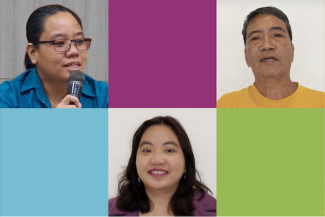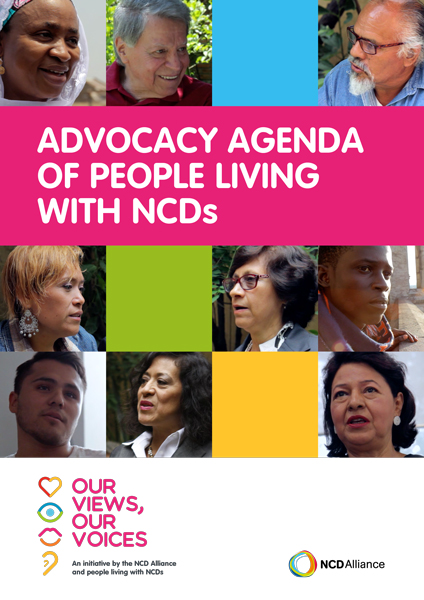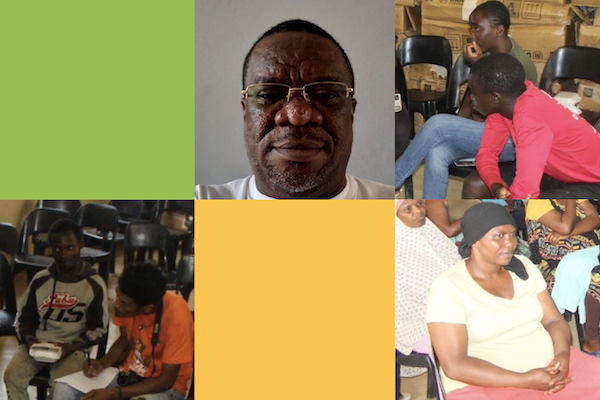Drawing from the experience of building the global Advocacy Agenda of People Living with NCDs in 2017, which unites the voices of almost 2000 people living with NCDs from 76 countries, many countries have since developed their own national advocacy agendas to drive local action to meet global NCD targets. In October 2023, the Healthy Philippines Alliance (HPA) announced the launch of the Philippines Advocacy Agenda of People Living with NCDs, aiming to place Filipinos living with NCDs, including their families and carers, at the heart of health policy and practice in the NCD response.
The Philippines Advocacy Agenda reflects the voices of 850 people with lived experience who were involved in focus group discussions and an online national survey conducted by the HPA, and elaborates on four main areas: Human Rights and Social Justice; Treatment, Care and Support; Prevention; and Meaningful Involvement.
The launch event on 25 October, which convened representatives from government, civil society, community organizations, and the private sector, as well as people with lived experiences, demonstrated the whole-of-society support for the document. Representatives were present from the Department of Social Welfare and Development, Department of Finance, Department of Science and Technology - Philippine Council for Health Research and Development, Philippine Health Insurance Corporation, the National Nutrition Council, and the National Economic Development Authority.
“For the very first time in the history of the Philippines, people living with NCDs have joined hands and developed the very first national Advocacy Agenda of People Living with NCDs.”
- Emer Rojas, a person living with NCDs, Global Cancer Ambassador and representative of New Vois Association of the Philippines (HPA member), in his opening remarks.
The event also included calls for even wider partnerships to strengthen the NCD response in the Philippines.
“I think that these discussions should really be expanded to include other sectors like academia and the business sector. They need to hear these discussions.”
- Takeda representative Estrella del Rosario, from the pharmaceutical sector.
Understanding the NCD burden in the Philippines
NCDs have become a major public health challenge in the Philippines, as in all countries. National data from 2022 shows that NCDs comprise the top five leading causes of death in the Philippines, namely: ischemic heart diseases (18.3%), neoplasms (10.2%), cerebrovascular diseases (10.2%), diabetes mellitus (6.3%), and hypertensive diseases (5.7%). In addition, the Philippines leads Southeast Asia with the highest number of deaths caused by kidney diseases. The Philippine Institute of Development Studies (PIDS) warned that if no action is taken to prevent or control NCDs, incidences of NCDs may double by 2040.
NCDs also carry a huge economic burden for the country – in 2015, they cost the Philippines economy 4.5% of its GDP, while high out-of-pocket expenditures for catastrophic payments have aggravated poverty. To curb the rising burden of NCDs, taxes on unhealthy products have been incrementally implemented in the country since 2012 and are used to help fund UHC benefit packages. However, despite Universal Health Coverage becoming law in the country in 2019, many Filipinos are still struggling with enormous out-of-pocket healthcare costs and the benefit package offered for NCDs is still considered inadequate.
To bring positive change, the Philippines Advocacy Agenda stresses the importance of multisectoral action on NCDs, with effective monitoring of programs to ensure protection from industry interference and strengthening primary healthcare. The people living with NCDs who crafted this agenda hope that the document will serve as a compass for stakeholders in collaborative action towards a more effective NCD response.
Now, after the Philippines has elevated the meaningful involvement of people living with NCDs to a new level, it is decision-makers’ turn to embrace the agenda and step up the NCD response in the country.
“Shaped by the voices of 850 people in the Philippines who have been consulted on their needs and priorities, the agenda should become a powerful tool to influence decision-makers and drive change in the Philippines.”
- NCD Alliance Capacity Development Manager Charlotte Aberdein.
The development of the Philippines Advocacy Agenda was led by an Advisory Group comprised of eight people living with NCDs, and facilitated by HPA, with support from NCD Alliance's Our Views Our Voices initiative, made possible by their partnership with Takeda Pharmaceuticals International AG Singapore Branch.



